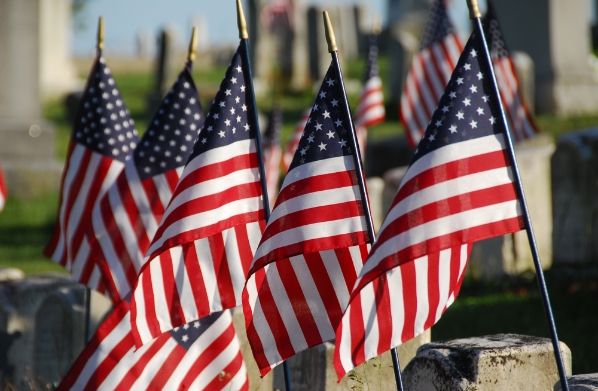Memorial Day, 2015 is a difficult one.
It comes on the heels of the fall of hard-fought-for Ramadi, which Americans took at great cost after the 2003 invasion, to ISIS.
White House Press Secretary Josh Earnest dismissed questions about the fall of Ramadi, which he describes as a “setback,” this way:
"Are we going to light our hair on fire every time that there is a setback in the campaign against ISIL or are we going to take very seriously our responsibility to evaluate those areas where we succeed and evaluate where steps are necessary for us to change our strategy where we sustain setbacks?" Earnest said Tuesday.
Whatever you believe about the Iraq invasion and President Obama’s subsequent actions in Iraq, “lighting our hair on fire” is a dishonorable way to talk. Earnest could have spared a few words for the American soldiers who fought to capture Ramadi. I must also note the bold action the administration proposes to take: it will “evaluate.”
I don’t really want to get into politics today, and I know that we are all looking forward to celebrating Memorial Day, a grand holiday. So instead of dwelling on the Obama administration’s unsatisfactory response to a defeat, let’s prepare to enjoy the feasts and also to think of the men and women who have had the courage to die for our country.
The New York Post today printed one of the greatest celebrations ever of military valor. It is the St. Crispin’s Day speech Shakespeare puts into Henry V’s mouth on the eve of a great battle, when he will lead ordinary soldiers into war. It is a speech about soldiers very like those who spilled their blood at Ramadi. We can do no better than to quote it:
If we are mark’d to die, we are enow
To do our country loss; and if to live
The fewer men, the greater share of honour.
God’s will! I pray thee, wish not one man more.
By Jove, I am not covetous for gold,
Nor care I who doth feed upon my cost;
It yearns me not if men my garments wear;
Such outward things dwell not in my desires:
But if it be a sin to covet honour,
I am the most offending soul alive.
No, faith, my coz, wish not a man from England:
God’s peace! I would not lose so great an honour
As one man more, methinks, would share from me
For the best hope I have. O, do not wish one more!
Rather proclaim it, Westmoreland, through my host,
That he which hath no stomach to this fight,
Let him depart; his passport shall be made
And crowns for convoy put into his purse:
We would not die in that man’s company
That fears his fellowship to die with us.
This day is call’d the feast of Crispian:
He that outlives this day, and comes safe home,
Will stand a tip-toe when this day is named,
And rouse him at the name of Crispian.
He that shall live this day, and see old age,
Will yearly on the vigil feast his neighbors,
And say ‘Tomorrow is Saint Crispian:’
Then he will strip his sleeve and show his scars,
And say ‘These wounds I had on Crispin’s day.’
Old men forget: yet all shall be forgot,
But he’ll remember with advantages
What feats he did that day: then shall our names
Familiar in his mouth as household words:
Harry the king, Bedford and Exeter,
Warwick and Talbot, Salisbury and Gloucester,
Be in their flowing cups freshly remember’d,
This story shall the good man teach his son;
And Crispin Crispian shall ne’er go by,
From this day to the ending of the world,
But we in it shall be remembered;
We few, we happy few, we band of brothers;
For he to-day that sheds his blood with me
Shall be my brother; be he ne’er so vile,
This day shall gentle his condition:
And gentlemen in England now abed
Shall think themselves accursed they were not here,
And hold their manhoods cheap whiles any speaks
That fought with us upon Saint Crispin’s day.


